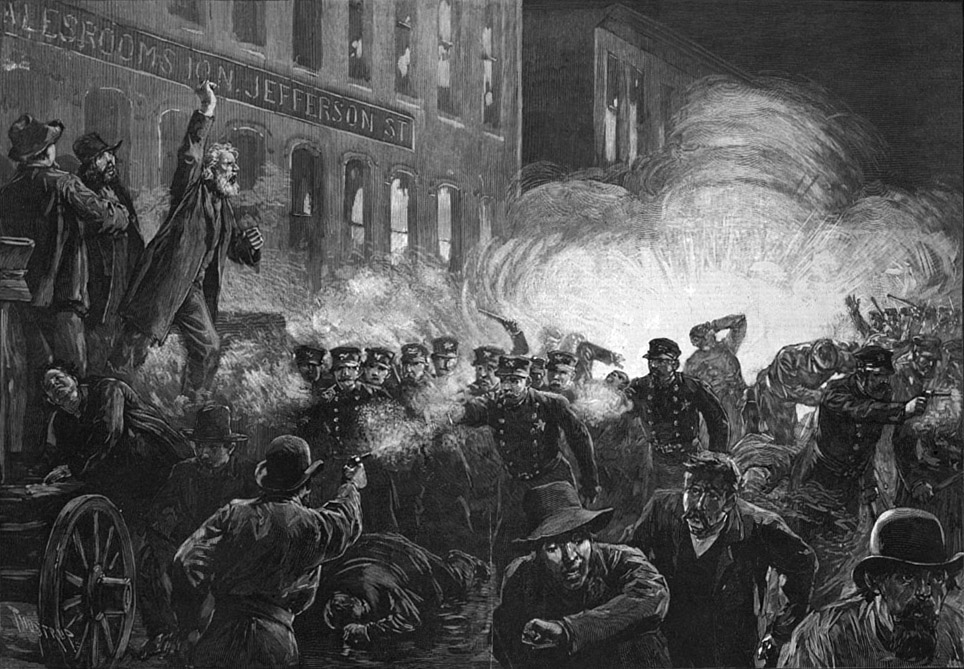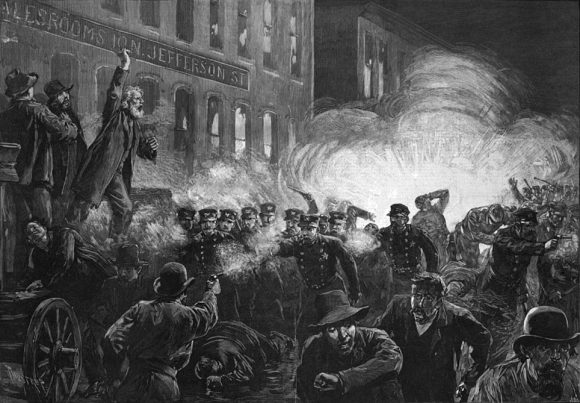Around the world May 1 is May Day, a holiday celebrated by Labor as a demonstration of its power and determination.
In the United States it is another work day and essentially forgotten as is the organized labor movement except by government workers and teachers. The industrial labor movement in America still has its vestiges in the United Auto Workers and Steelworkers and electricians, but it is a withering movement in the small- and medium-sized businesses I deal with.
Retail is a wasteland for organized labor. UPS is organized, but FedEx is not. Uber and Lyft are totally nonunion. McDonald’s and Starbucks are almost completely nonunion. Amazon is non-union.
Politically, the alliance of organized labor and the Democratic Party was significantly devalued by Donald Trump in 2016. He won Ohio, Pennsylvania, and Wisconsin with the votes of union and nonunion labor, and the Democrats were devastated and angry. Even in the recent Chicago mayoral race, Toni Preckwinkel, who built her power in Chicago with the support of the Teachers Union, was humiliated by Lori Lightfoot, managing partner of one of the most powerful corporate law firms in Chicago.
What happened to labor unions in America?

A lot can be attributed to Richard Nixon and Henry Kissinger’s rapprochement with China in the early 1970s. They saw it as a way to blunt the power of Russia, but it also set the stage for the development of China as an economic rival for America. Our increasingly open trade policies and China’s incredibly successful combination of capitalism and communism captured millions of U.S. jobs and gave corporate America an easy option to combat organized labor. Self-serving labor leadership in big unions like the Teamsters hurt it. The opening of the South to big corporations badly wounded unions like the UAW. Independent steel companies like Nucor opened plants in small towns and gave bonuses for production which whiplashed unions like the United Steelworkers.
To most young people today union membership is barely interesting unless they have a connection to get into a locally strong organization like Chicago’s electricians union, which has connections with big developers who have valuable relationships with key politicians. This union style is not apt to draw big crowds to demonstrate on May Day.
It’s an insider’s game now. If that approach continues organized labor will soon be seen as a relic of Depression days to be occasionally studied in American history classes.
Question: Would you want to be in a union?


12 Comments
Hell no!! I believe in myself enough to sink or swim on my own.
No. My taste for unions soured when, as a temporary summer auto worker at a UAW stamping plant, I was chastised by regular UAW employees for helping management fix a machine that prevented us from stamping fenders while they all sat around on an unscheduled smoke break. They didn’t seem to make the connection that by keeping the factory running, we were keeping ourselves employed. They were even more upset when the plant manager gave me the rest of the shift off with pay. Why would I want to work in a system where the self motivated are not rewarded?
you are describing a screw machine shop
we owe our middle class lifestyle to the unions else we be like china….
I have to agree with Don that we owe our middle class lifestyles to the unions.
Would I want a Union Shop No // or to work for a Union Shop No!
I once suggested to several members that we should start a suppliers union. I was quickly told that would be in violation of antitrust laws.
I worked in Youth in a UAW shop as an Apprentice Tool & Die Maker, and as a Management trainee for a now Dead Machine Tool builder member of IAM, Long story short the Unions kept aggressive young people down, if you excelled you were in trouble with the Shop Steward (Make it last was the way it was, not how fast and efficiently it could be done,) to improve profit for company. I am sure Unions were important to improve the lives of Labor, but by the 60’s they should have been gone via Right to work laws. Ohio still struggles with Union’s move plant across the border, to Kentucky, or Indiana, or Michigan.
No. I’ve been blessed to work a combined 35 years in 2 union free jobs, where merit increases are earned based on performance. I’m not naïve- I realize unions established fair labor laws early on, so unions served their purpose, but the snake ate it’s tail so to speak…
the time and need for unions have come and gone. they stifle workers into stupidity all the while jacking up the costs of producing anything. they steal from both sides and deal only with corruption to the highest degree. unions are a subset of socialism. but, one must not forget the business has also screwed the workers many times. a balance can be made but both sides have to come together with their attitudes left at the door. having unions in the middle screws both sides.
I have spent the last forty years getting paid for what and how much I did
Not for how long it took to do it
Worked for Alcoa for a short time and almost starved to death working by the hour
Back in the late 70’s and early 80″s I worked for a company during my tool & die apprenticeship which was union, I did most of apprenticeship there until a layoff in the early 80″s due to a down turn in the economy. Union was a joke, it only protected the lazy worker. Some of which hardly did anything and they knew they wouldn’t get fired. We have time allotments on jobs each machined components. Most of the time I was faster and that made other mad since that time was then uses when parts came around next time. Workers would pace to get done just in time or if they got done early they did absolutely nothing, just wasting time. I had union steward tell me at times to slow down because I was making the guy on days look bad, He had been there 20 years and I was a 3rd year apprentice. Maybe at one time the unions were good but not anymore. I can see a union in say the col mining industry where there is major safety issues. Now I have had a machining business of 30 years now and will not hire anyone from a union background. From my experience where I worked employees were over paid for what they accomplished. When I worked for another company after that, non union, I made more than the union shop because I made the company money, did my job with pride and was efficient and they rewarded me for my efforts. So you don’t need a union to make a good wage. Just be a loyal employee with a desire to see your employer succeed.
I was a naive young engineer at a union shop. I could get around on bridgeports and lathes. As an engineer I could make sketches or drawings but not touch a machine. I’d give the drawings to the toolrooom and they’d ignore them. Frustration followed. The union supervisor was Milquetoast. A few times my first year, I’d get sick of waiting and start machining during union lunch and breaks and before or after dayshift hours. The machinists would come around, smile and help me make my new fixture prototype. I might work 2-4 hours in the toolroom with them helping me the whole time. I thought we made a good team. I was an naive. When I was done, they’d file a grievance for overtime rate of the # of hours I worked doing their job that they ignored. They’d get the overtime rate because they was not enough time to get my prototype done and if they were going to do it, they’d have to stay late. They knew the longer I worked machining a prototype, the more money they’d make from the grievance. Pretty clever. I’d guess they stifled the manufacturing engineering dept productivity and modernization by 50-70%. Nobody cared. Factory closed in 2007.
Now I’m a teacher and in the teachers union. We’ve had a number of layoffs, all seniority based. I’m lowest seniority in my department. If there’s another round of layoffs, and they include my department, I’m gone.
Mike, that is quite a damning picture of unionism gone bad. I have had very little direct contact with unionism other than walking through UAW shops and observing the Teacher’s union in the Chicago area help destroy the schools and indirectly the whole area, economically.
The decline of unions in America is a fascinating story and Toni Preckwinkel’s devastating loss in the Chicago Mayor’s race is a good indicator of their shrinking power. In an era of miniscule unemployment their economic viability is threatened, which is not to deny vulnerable workers like hotel maids will not be longing for union protection.